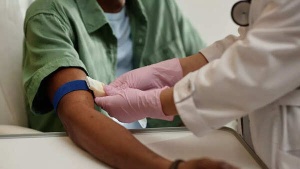Why is kidney failure called the silent killer?
Kidney failure is often referred to as a “silent killer,” and for good reason. Unlike more obvious ailments, it can progress unnoticed, causing significant damage before symptoms become apparent. This insidious nature stems from the kidneys' vital role in the body and the subtle ways in which their dysfunction manifests. While heart problems often announce themselves with chest pain, kidney problems often present with vague, easily dismissed symptoms. Many individuals only realize something is wrong when the damage is extensive. The kidneys impact the entire system, filtering waste, maintaining blood pressure, and producing essential hormones.
Here are five critical reasons why kidney failure deserves the title of a silent killer:
The Body's Deceptive Adjustment
One of the most dangerous aspects of kidney failure is the body's remarkable ability to compensate for declining function. As the kidneys gradually lose their capacity, other organs step in to fill the void. The liver takes on additional waste management, blood chemistry adjusts, and energy is rerouted.
This compensation can mask the severity of the problem. Symptoms such as fatigue, nausea, or puffiness around the eyes may appear, but are often mistaken for stress, lack of sleep, or dietary issues. In many instances, kidney problems are only discovered when kidney function has plummeted below 15%.
Remarkably, kidneys can lose up to 90% of their function without triggering noticeable symptoms. This medically documented fact underscores the silent threat posed by kidney disease.

Overlooked Everyday Signs
The symptoms of kidney failure can be subtle and easily attributed to other causes. A persistent metallic taste in the mouth, unexplained itching, or swollen feet might seem unrelated, but they can be indicators of declining kidney function. Unlike the acute chest pain associated with heart issues, kidney-related symptoms rarely feel urgent.
The scattered and seemingly unrelated nature of these symptoms often leads to misdiagnosis or neglect. For instance, itching might be treated with creams instead of blood tests, or swelling might be attributed to salt intake rather than a failing kidney.
Protein leakage in urine is an early sign of kidney trouble, but it doesn't cause pain. Routine urine tests could detect this, but they are not typically included in general check-ups for healthy individuals.
Kidney Damage Originates Elsewhere
Kidney failure doesn't always originate within the kidneys themselves. Often, it's a consequence of conditions like high blood pressure, diabetes, or even prolonged use of over-the-counter painkillers such as ibuprofen. These underlying issues may not be recognized as potential threats to kidney health until it's too late.
For example, individuals managing high blood sugar may not be aware of the potential damage to the kidney's delicate filtering units. Similarly, those taking painkillers daily for joint pain might not be warned about the gradual wear and tear occurring within their kidneys.
Diabetic nephropathy, kidney damage caused by diabetes, is a leading cause of chronic kidney disease (CKD) worldwide. It develops slowly and silently over years, often without noticeable symptoms until significant damage has occurred.

Routine Check-ups Often Miss Kidney Function
Standard health check-ups typically focus on cholesterol, blood sugar, blood pressure, and liver function. Kidney function tests, such as serum creatinine or glomerular filtration rate (GFR), are often omitted unless there's a pre-existing kidney issue. This oversight creates a significant gap in early detection.
This lack of routine testing contributes to the silent progression of kidney disease. Individuals may believe they are in perfect health based on their basic test results, unaware that their kidneys are quietly deteriorating.
Sudden and Severe Symptom Onset
The insidious nature of kidney failure culminates in a rapid decline once symptoms finally manifest. When the kidneys fail, the body is overwhelmed with toxins, leading to confusion, seizures, and heart problems within days or weeks. At this stage, dialysis or a kidney transplant becomes the only viable option.
Tragically, many individuals reach this critical point without ever knowing they had a problem. The silent progression of the disease can last for years, but the resulting crisis can erupt suddenly.
Acute kidney injury (AKI), a sudden form of kidney failure, can also occur, often triggered by infections, medications, or dehydration. In these cases, timely intervention is crucial, but may be hampered if kidney health is not already being monitored.
Preventing Kidney Failure: Proactive Steps
Fortunately, there are proactive measures that can protect kidney health and potentially prevent kidney failure:
- Regular urine and blood tests that include kidney markers, particularly for individuals with diabetes, high blood pressure, or frequent painkiller use.
- Cautious hydration: Drinking water is essential, but excessive hydration or using "detox" drinks without medical guidance can be harmful.
- Avoid unnecessary over-the-counter medications, especially NSAIDs like ibuprofen or diclofenac, unless prescribed by a doctor.
- Regularly monitor blood pressure and blood sugar levels. Stable readings are crucial for kidney health.
- Pay close attention to unusual body signals. Unexplained fatigue, swelling, or changes in urination patterns should never be ignored.
Newer articles
Older articles
-
 5 smart tricks to instantly influence anyone (without being pushy), as per psychology
5 smart tricks to instantly influence anyone (without being pushy), as per psychology
-
 This new AI tool can help you book train tickets, get refunds and check details on IRCTC website and app
This new AI tool can help you book train tickets, get refunds and check details on IRCTC website and app
-
 Cancer could be detected 3 years before symptoms appear with a simple blood test; new study reveals
Cancer could be detected 3 years before symptoms appear with a simple blood test; new study reveals
-
 ESA reveals the first stunning images of an artificial solar eclipse created by Proba-3 satellites
ESA reveals the first stunning images of an artificial solar eclipse created by Proba-3 satellites
-
 Chess: 'My wife is way more attracted to me now' — Magnus Carlsen after record rating in freestyle
Chess: 'My wife is way more attracted to me now' — Magnus Carlsen after record rating in freestyle
-
 Don't worry about the outside world: Tendulkar's advice to Gill
Don't worry about the outside world: Tendulkar's advice to Gill
-
 NASA astronauts prepare ‘space sushi’ aboard the ISS in zero gravity during a heartwarming crew celebration
NASA astronauts prepare ‘space sushi’ aboard the ISS in zero gravity during a heartwarming crew celebration
-
 Amitabh Bachchan calls working with son Abhishek Bachchan his 'greatest blessing'
Amitabh Bachchan calls working with son Abhishek Bachchan his 'greatest blessing'
-
 Tait rues new-ball miss as Nissanka punishes Bangladesh
Tait rues new-ball miss as Nissanka punishes Bangladesh
-
 Twitter bans over 5 lakh accounts in India, here's why
Twitter bans over 5 lakh accounts in India, here's why